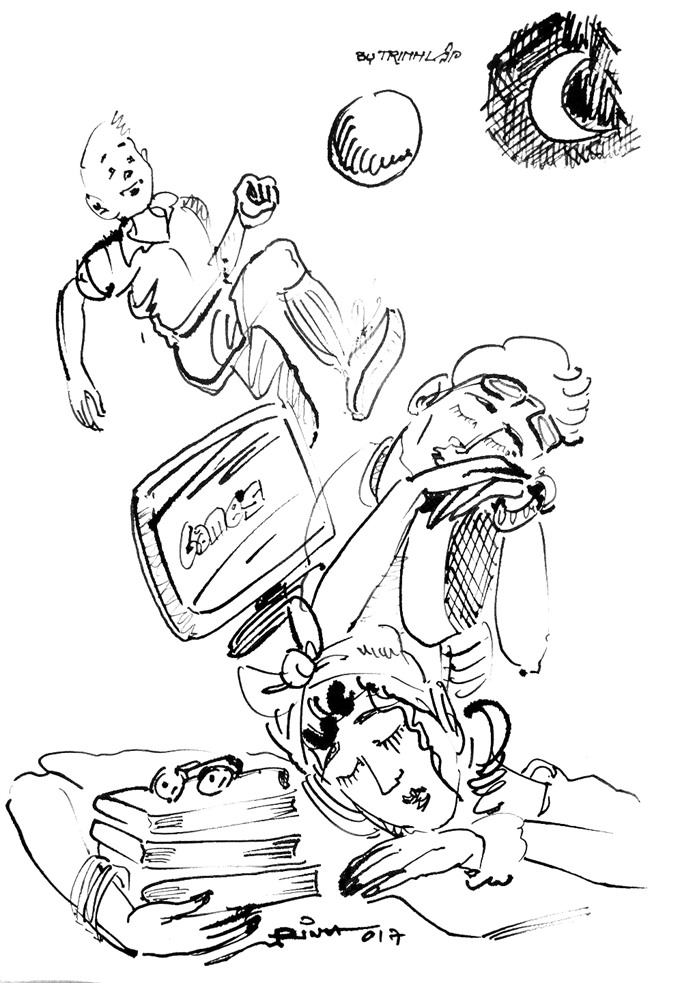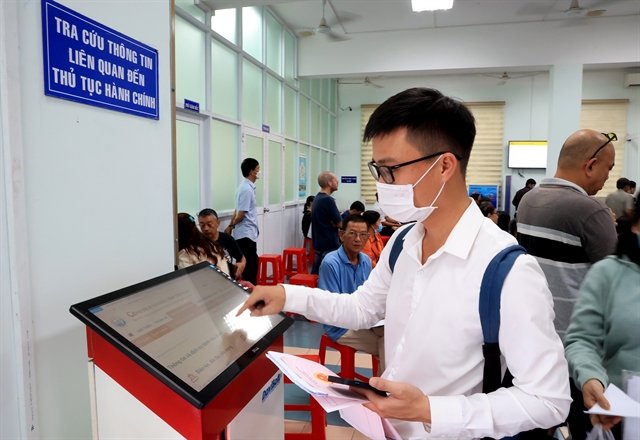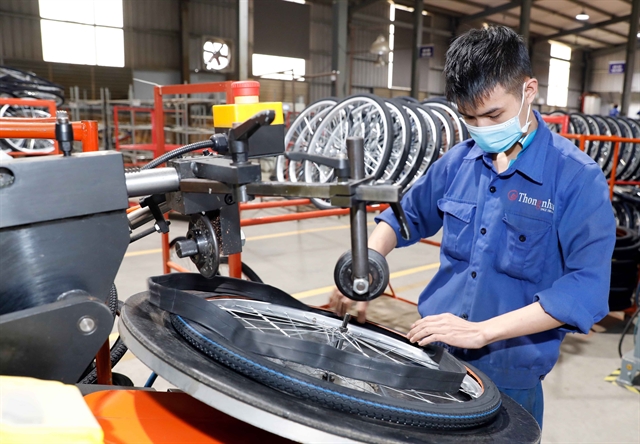 Talk Around Town
Talk Around Town

Parents should understand that children need sleep as much as they need food to function and stay healthy.
 |
By Nguyễn Mỹ Hà
I was upset to hear that my child’s piano teacher had moved the class’s end-of-term exam to the evening so she could have an additional day off for the upcoming National Reunification–Labour Day holiday weekend. The 12 children will thus have to take the exam at 8.30pm on Sunday.
On the one hand I was angry because 8.30pm should be bedtime for these kids, who are not yet 11 years old. And after a long day of play and activities, they should not be put under the pressure of taking a music exam when they cannot perform at their best.
When I spoke up against this decision, I was even more surprised by the other parents’ attitude. They agreed with the teacher and I felt ridiculous.
After the class, one of the parents came up to me and agreed that 8:30pm was too late for the children to take an exam.
This is only an extra-curricular music class. These kids are not training to go to music schools or become musicians. Music for them is fun, not supposed to be an ordeal. It’s not something they have to do to please others, only themselves.
At a conference held in Hồ Chí Minh City last year, Dr Jonathan Halévy issued a warning about sleep deprivation among children and adolescents in Việt Nam. Halévy is a pediatrician at Family Medical Practice, a private foreign-owned clinic.
“Sleeping is very important for normal brain development, for body growth and for normal hormonal function (such as growth hormones). Even bodybuilders know that muscles grow during sleep, not only in the gym," he tells Việt Nam News in an e-mail interview. "Sleep deprivation and poor sleep quality have physical, emotional, behavioral and cognitive impacts.”
On a national scale, it seems that parents are stretching their children’s bed times later and later. In the past, when electricity was scarce and expensive, children were told to go to bed early. Now it is available and affordable, and parents can enjoy late TV shows or go online into the night, and their children follow suit.
On a regular weekday evening one sees young children on motorbikes or taking a walk with their parents or going with them to a cafe or beer hall well past their bedtime.
“Việt Nam is the only place I’ve seen it happen. I’ve seen babies taken to the movie theater at 10pm, toddlers hanging out with their parents at a night club, surrounded by people who smoke and drink alcohol. I can’t understand how irresponsible parents can be.
"In any other country, places like this will not allow people younger than 18 or 21 to enter, but in Việt Nam it seems there is no age limit.”
At the HCM City conference, the doctor said an alarming rate of nearly 40 per cent of children in Western societies lack sleep. “Statistics in Western countries talk about close to 40 per cent of teenagers suffering from chronic sleep deprivation. I don’t know accurate numbers in Việt Nam, but I suspect the situation here is even worse.”
Prolonged sleep deprivation can lead to psychological disorders.
Every time I hear a mother complain about her child going to sleep late, say after 9.30pm, another pops up and says her kids go to bed as late as 11pm, as if to comfort the first woman.
Urban parents wanting to go out for an evening’s entertainment but not having a babysitter simply take their kids with them. Some, or even most restaurants, bars, cafes do not have rules banning children.
During the children’s International Day on June 1, many children’s music and game shows only started at 8pm. By the end, at 10pm, some of the kids had already fallen asleep or were too excited long after the show to fall asleep.
Dr Halévy thinks Vietnamese children are overworked by their tight study schedule. “Vietnamese parents are very dedicated and they want to give their child the best education possible. Many teenagers take supplemental lessons in mathematics, English etc. after school hours.
Then they return home to have a quick dinner and do their homework. By the time they get to bed it’s already close to midnight (or even past midnight).
“Some schools in Việt Nam work in “shifts” and classes start very early, which means children must wake up at 5am to get to school on time. That leaves the child with very little time to rest.”
Dr Halévy writes that he had many teenage patients that were sleeping less than six hours a day.
“Parents should understand that children need sleep as much as they need food to function and stay healthy. The same way a parent will never think of depriving his child of food, he shouldn’t deprive his child of sleep. And if parents want their children to excel in their studies — they need to make sure they get enough sleep.”
It’s about time the National Committee to Protect Children takes action on behalf of the children by issuing instructions on suitable time frames for public activities geared toward children, and warning parents about the danger of sleep deprivation.
Theatres usually do not even have matinee shows for children during weekends.
Back to my child’s music exam. The teacher said it’s only a three-minute exam. But after a full-day of activity, topped by a late evening exam, it takes at least an hour for their nerves to calm down and switch to sleeping mode.
She has already offered to move my child to another exam day.
“To take the exam with strange kids and without my teacher being there?” my child asked. “I’d rather take the 8.30pm exam.”
On Sunday, as we arrived at the test hall, we saw not only kids taking their test with an accompanying parent, but whole families: father and mother, the child taking the test, and worst of all, toddlers in the arms of older relatives.
It was more than just an exam, it was a special occasion marking the progress of a child taking music lessons.
It was a festive opportunity too, as many of the young musicians received a bouquet of flowers congratulating them on their achievement, whether they passed or failed.
After previous tests, we would go out for an ice-cream as a reward for all the kids’ work and commitment. The kids appreciated the treat, and the parents had an opportunity to get to know each other, with the music bringing children and their families closer.
It’s important for the children to feel content after the stress of an exam. The chance to relax with ice-cream is part of making the kids feel happy, and helps with a sound night’s sleep. Happiness, after all, is the main reason for children to learn music. — VNS









